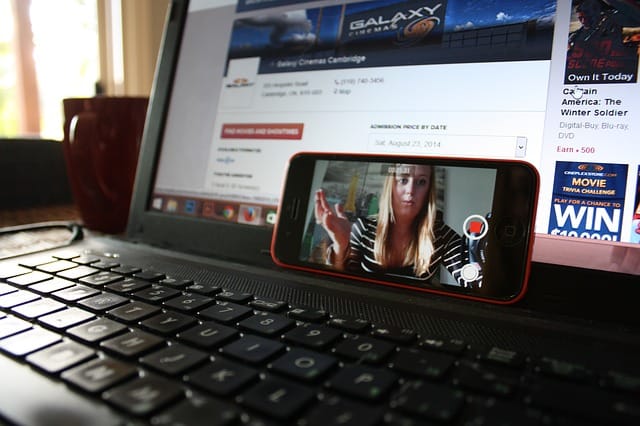Since the beginning of the global pandemic COVID-19, the workplace and job market changed drastically overnight. Over 41.8% of Americans work remotely or from home. New norms were implemented; such as working from home, businesses being forced to shut down, and virtual job interviews. Technology played a huge role in adjusting to what the new workplace would look like.
Upon the economic recovery from the pandemic-related recession, the hiring process is starting to increase. ResumeBuilder released a new survey across 1250 hiring managers to find which remote-work skills have become the most valuable.
Video chat proficiency is at a higher demand in order to communicate and work together effectively. 38% of hiring managers said that video chat proficiency is the most valuable skill to have in the workforce right now. In the new work environment, video chat proficiency is necessary for working efficiently and team building. Applications like zoom were used for video chatting and conferencing for meetings, interviews, even classes for Universities.
How Social Media Is Utilizing Video Resumes
TikTok is used as a video-sharing app to share 15 to 60-second videos. Recently, TikTok released a new feature that allows users to have the ability to respond to job offers with a short video instead of using a traditional resume. In order to adapt to the “new normal” of remote work, employers and hiring recruiters had to get creative.
Recruiters now have the ability to post the job offer and description on a specific website to which TikTok users can apply by submitting video resumes and hash tagging #TikTokResumes to it.
The Implications of Video Resumes
Even in the era of zoom interviews, candidates are counseled on having a professional background, clean of distractions and anything that could inadvertently eliminate themselves from the process. Even a sports item can turn off an interviewer although totally irrelevant to the candidates’ success in a given position. Just like behavioral interviewing was developed and quickly gained acceptance to eliminate personal bias as much as possible (such as a candidate merely resembling someone the interviewer does not like, or turned off by their style of dress), this TikTok trend works to reverse that. Creative positions as well as others may lend themselves for the skills needed for a successful TikTok and here it can be an asset to the process.
On the latter side, using TikTok and social media during the interview process can surely become a slippery slope. Just like resumes are edited to focus on the skill set and experience someone brings to the table, to take out distracting information such as years graduated or current address that can inadvertently lead a hiring manager to pass over a candidate.
Using TikTok can eliminate a highly qualified candidate due to subjective responses to a creative process that may have no bearing on the success of the candidate in a given position. If a cultural fit is of utmost importance to an organization, this may become a part of the process, especially if the skill set of producing a TikTok video is relevant to the position the candidate is applying for.
Does A Video Resume Cause More Damage Than Good?
Hiring managers have been working to keep discrimination out of the hiring process for quite some time to truly evaluate the skill fit for a candidate. To start using TikTok, or a video resume, may dangerously open that door again. Additionally, the TikTok video that is created and posted to a job board for one specific interview will last on the internet, so any future hiring manager can find it and eliminate that candidate before ever even being called for an interview, as hiring managers often google candidates ahead of time. Candidates must remember that whatever they put out there or post online will remain out there and the time may come in the future where they will have to explain it to a hiring manager in the interview process, if they are fortunate enough to get the opportunity.
The Future And Beyond
Now, with the end of the global pandemic in sight and vaccines being pushed out, the changes once made to hiring processes and the workplace might stay for good. In a world where technology and social media remain prominent, these new trends like video resumes might become a part of the “new normal” everyone is adapting to.
This guest post was authored by Stacie Haller

Stacie Haller has spent over 30 years in staffing and recruiting with decades of career counseling, job search coaching, recruiting and assisting and mentoring hundreds of candidates in finding their next step in achieving their career goals. Her real-world hiring and staffing experience in every economic climate, along with a Masters in Career Counseling from NYU, spans major global staffing organizations as a senior executive including Robert Half, Kelly Services, Aquent, Adecco, Weatherby Locums and Spherion among others.
Stacie has hands-on executive recruiting expertise and experience as well as having direct hundreds of candidates herself. Beginning in the IT industry placing systems and operations personnel for major data centers on the east coast, she has extensive experience with accounting and finance, legal, locum tenens, marketing, and administrative positions at all levels in an organization supportingFortune 50 companies as well as smaller organizations as a staffing partner and workforce solutions consultant. Stacie also teaches job search and resume workshops for local adult schools and ran mentoring programs for Dress for Success in the South Bronx. Contributing editor at ResumeBuilder.com.
The post Video Resumes: New Trend or Gateway to Discrimination? appeared first on Ms. Career Girl.
Read more: mscareergirl.com


